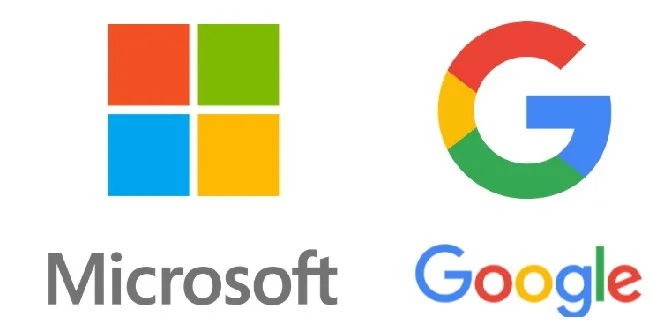Both giants in the world of technology, Google and Microsoft are easily two of the most recognizable names in the industry. With an array of products and services that play an integral role in our digital lives, many often wonder if these two corporations are the same or different.
In this article, we’ve teamed with Microsoft experts PPC Geeks to delve into an in-depth analysis of their core principles, products, business models, and overall strategies, illuminating the distinction between the two.
Foundational Principles and Missions
Larry Page and Sergey Brin established Google in 1998 with the aim of organising global information and ensuring its universal accessibility and usefulness. In contrast, Bill Gates and Paul Allen founded Microsoft in 1975 with the objective of enabling every individual and organisation worldwide to accomplish more. While both companies share a commitment to technological advancement, Google places greater emphasis on the accessibility of information, whereas Microsoft focuses on empowering individuals and organisations through its innovative technology.
Core Products and Services
When it comes to core products and services, Google is primarily recognized for its search engine. However, they have expanded into numerous other sectors like email (Gmail), cloud storage (Google Drive), mapping (Google Maps), and mobile operating systems (Android). In contrast, Microsoft gained its reputation through its flagship products Windows and Office Suite, and has later moved into areas like cloud computing (Azure), gaming (Xbox), and professional networking (LinkedIn). Thus, while there’s some overlap, each has its unique forte.
Business Models
Google’s primary business model is based on advertising. Through their proprietary platform, AdWords, businesses pay to be seen in search results, a form of Pay-Per-Click advertising, where the terminology PPC Geeks often comes into play. Microsoft, however, follows a diversified model, generating income through various sources such as software sales, cloud services, gaming, and hardware sales.
Impact on Society and Future Prospects
Undoubtedly, both Microsoft and Google have had profound impacts on society. They’ve transformed how we interact with technology, conduct business, communicate, and even how we perceive the world. However, their societal impacts are nuanced and reflect their distinct identities.
Google, with its commitment to making information accessible and useful, has revolutionised the way we search and access information. Its services like Google Search, Google Maps, and YouTube have become everyday tools for billions of users worldwide. Moreover, Google’s advancements in machine learning and artificial intelligence, particularly through its subsidiary DeepMind, are set to redefine the boundaries of these technologies.
Microsoft, meanwhile, has been a driving force in democratising personal computing. With the Windows operating system and the Office Suite, Microsoft brought computers into homes and offices around the globe, reshaping productivity and communication. Furthermore, Microsoft’s investments in cloud technology, cybersecurity, and quantum computing signify its vision for the future.
Looking ahead, both companies seem poised to remain at the forefront of technological advancement. Google is focusing on AI in its products, and it continues to refine its advertising services, where experts help businesses leverage Google’s platforms for maximum visibility.
Innovation and Competition
Google and Microsoft have indeed been competing in various domains like cloud computing, digital advertising, and productivity tools. Despite this competition, they have their own unique approaches to innovation. Google tends to foster innovation through a culture of experimentation, often launching numerous products and observing user adoption. Microsoft has traditionally been more focused on incremental innovation, building upon and improving existing products.
Market Perception and Branding
Google’s branding emphasises its friendly, creative, and innovative approach, with its fun and colourful logo embodying this image. Microsoft’s branding, while also innovative, is perceived as more professional and business-focused, aligning with its key user base.
Concluding Thoughts
In essence, Microsoft and Google are not the same. Each has its unique origins, missions, products, business models, and branding strategies. While they may overlap and compete in certain sectors, each has carved a distinct niche for itself in the technology industry. As technology continues to evolve, it’s intriguing to observe how these two giants will adapt and transform in their pursuit of technological excellence.You cal also check Microsoft AZ-801 exam dumps to know more about Microsoft





